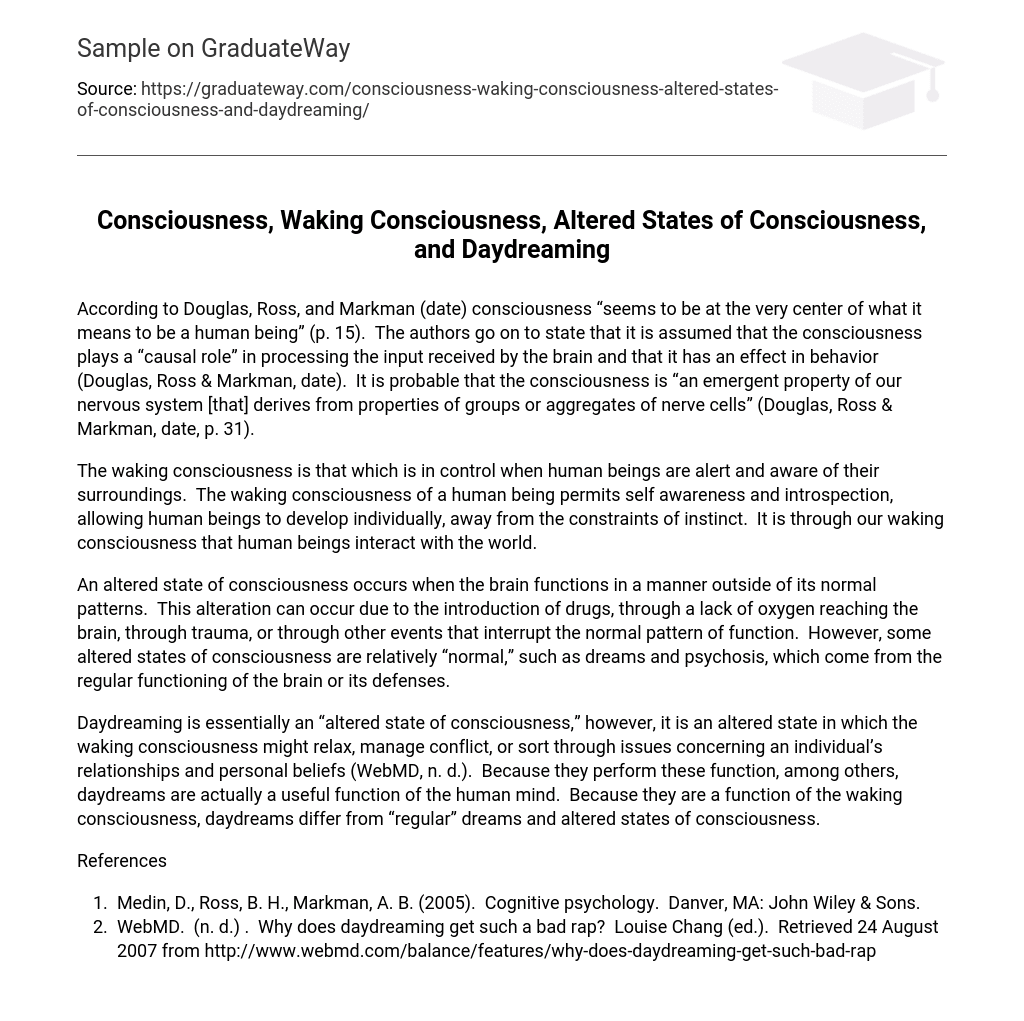According to Douglas, Ross, and Markman (date), consciousness seems to be at the very center of what it means to be a human being” (p. 15). The authors state that consciousness is assumed to play a “causal role” in processing input received by the brain and has an effect on behavior (Douglas, Ross & Markman, date). It is probable that consciousness is “an emergent property of our nervous system [that] derives from properties of groups or aggregates of nerve cells” (Douglas, Ross & Markman, date, p. 31).
The waking consciousness is in control when human beings are alert and aware of their surroundings. It permits self-awareness and introspection, allowing individuals to develop independently from instinctive constraints. Through our waking consciousness, we interact with the world.
An altered state of consciousness occurs when the brain functions outside of its normal patterns. This alteration can occur due to the introduction of drugs, a lack of oxygen reaching the brain, trauma, or other events that interrupt normal function. However, some altered states of consciousness are relatively normal,” such as dreams and psychosis which come from the regular functioning of the brain or its defenses.
Daydreaming is essentially an altered state of consciousness.” However, it is a state in which the waking consciousness can relax, manage conflict, or sort through issues concerning an individual’s relationships and personal beliefs (WebMD, n.d.). Daydreams perform these functions and others, making them a useful function of the human mind. Unlike “regular” dreams and altered states of consciousness, daydreams are a function of the waking consciousness.
References
- Medin, D., Ross, B. H., & Markman, A. B. (2005). Cognitive psychology. Danvers, MA: John Wiley & Sons.
- WebMD. (n.d.). Why does daydreaming get such a bad rap? Louise Chang (Ed.). Retrieved August 24, 2007 from http://www.webmd.com/balance/features/why-does-daydreaming-get-such-bad-rap





